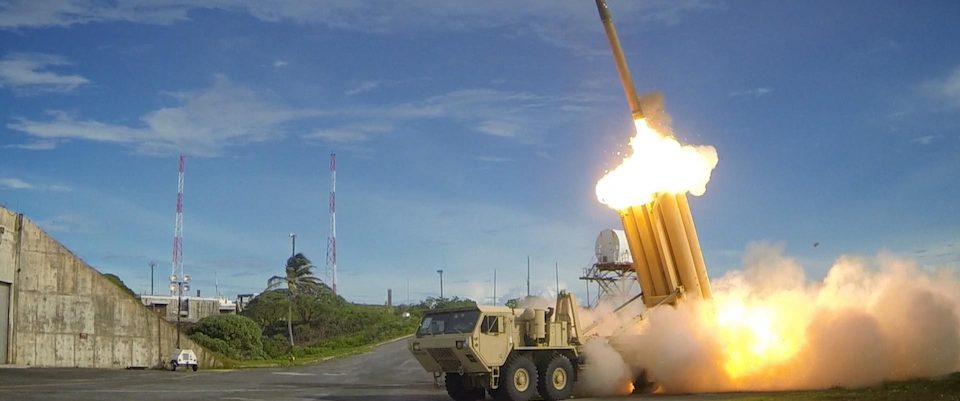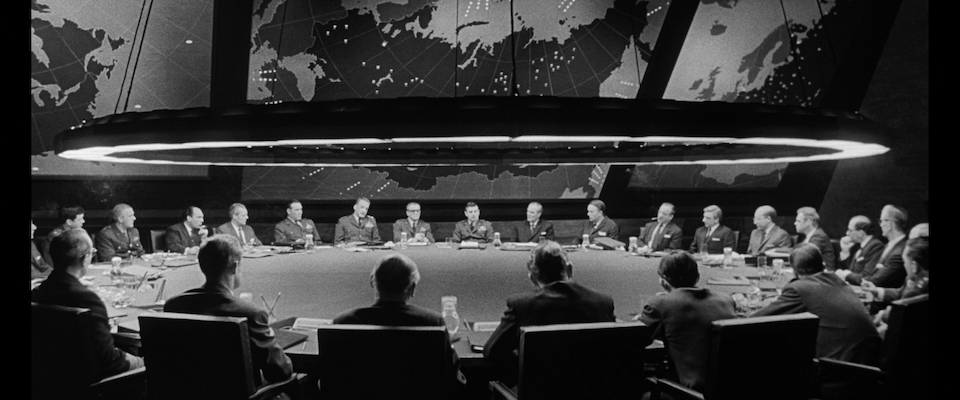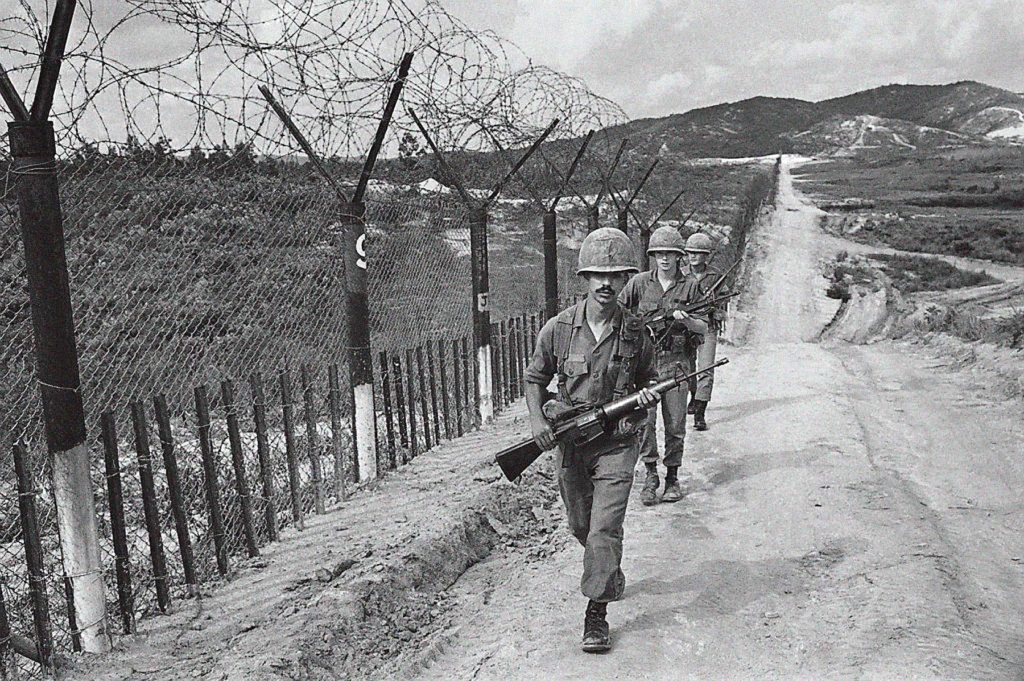Of all the potential flash points around the world these days, none are more worrisome than North Korea. The Hermit Kingdom is a black box, and it’s exceedingly difficult to know what’s going on within its borders. A couple of things, however, are clear: its nuclear and ballistic missile capabilities are improving, and the mutual bellicosity between Kim Jong-un and Donald Trump are making a bad situation worse.
Evaluating the objective risk of war is thus difficult, but UC Berkeley political science professor Steven Weber has a better vantage on the situation than most. Weber is a past consultant to the U.S. Commission on National Security in the 21st Century, a former director of Berkeley’s Institute of International Studies, and a former academic fellow with the Council on Foreign Relations. He spends quite a bit of time these days thinking about North Korea and the various scenarios that may play out. He also prefaces any discussion of the topic with a caveat: he doesn’t have a security clearance, so all his opinions are based on unclassified material and press coverage.
“That said, it’s unclear how much detail is available even in classified reports,” Weber says. “Confidence estimates aren’t always explicit.”
Still, there is no doubt that North Korea now has a functional nuclear capability, Weber says.
“No one knows how many bombs they have, but it’s probably a small number. They haven’t yet demonstrated that they have the capability of making warheads small enough to put on top of a ballistic missile, or that that the warheads would be survivable through launch and re-entry.”
As for the missiles themselves, says Weber, “There was a burst of testing activity a couple of years ago. They were testing a lot of missiles, but they didn’t function as expected. It’s now understood that electronic sabotage was involved, that the Obama administration probably ordered a series of cyberattacks on those portions of North Korea’s electronic infrastructure linked to missile navigation systems. The surprise is that over the past six to eight months, North Korea has been able to get their [missile test] success rate back up to a pretty high level. They apparently have been able to get past whatever the U.S. did to sabotage them.”
North Korea now has a significant intermediate range missile capability—sufficient to strike its regional neighbors, including South Korea, China, and Japan—and is gaining on intercontinental ballistic missile capability, says Weber.
“They haven’t demonstrated true ICBM capability yet, but they’re closer than most analysts thought they would be at this stage,” he says. “Most [informed] people think ICBM capability is between six months to two years off. I don’t think anyone would say it’s five to ten years away.”
“It has been true for a very long time that we could not fight a war with North Korea without inflicting hundreds of thousands or millions of casualties in South Korea.”
As to how we got here, Weber says there is real validity to President Trump’s claims that past U.S. administrations have habitually kicked the North Korea can down the road. Weber notes that both U.S. Senator Dianne Feinstein and Barack Obama rightly warned Trump that North Korea would be his greatest foreign policy challenge. The U.S. has been trying to figure out ways to deny North Korea nuclear and ballistic missile capability for at least 20 years, but nothing has changed appreciably in that time in terms of options, Weber says. Kim Jong-un’s modest nuclear stockpile and launch capability simply compound a problem that has always seemed intractable.
“Though the constraints were based on conventional forces and weaponry [prior to North Korean acquisition of nuclear capability], they haven’t really changed in their basic dynamics,” Weber says. “They have a very large infantry and armored forces and thousands of artillery tubes pointed right at Seoul, which is only 35 miles from the DMZ. It has been true for a very long time that we could not fight a war with North Korea without inflicting hundreds of thousands or millions of casualties in South Korea. That hasn’t changed. No one has ever figured out a way around that. There have been lots of different war plans based on any number of rationales, but there’s no convincing argument that South Korea—and possibly other parts of the region—would not suffer damage on a scale that hasn’t been seen since World War II. Past administrations understood that, and my sense is that Trump and the top people in his administration understand that as well. Otherwise, they would’ve acted more aggressively by now.”
But what about a surgical strike to take out North Korea’s nuclear stockpiles and missile launch sites? Similar actions were contemplated by President John F. Kennedy during the Cuban Missile Crisis. But Kennedy eschewed such options, says Weber, because there was no guarantee that all the missiles in Cuba could be taken out in one fell swoop. North Korea presents a similar dilemma. Yes, it’s possible, maybe even probable, that the country’s nukes and missiles could be destroyed in a first strike, but it is not assured. And the consequences of Kim launching even a few warheads would be too high of a price to pay.
Indeed, there may be no practical way to stop North Korea from developing full nuclear ICBM capability. And that has led to an interesting debate among military strategists, says Weber, to wit: Could we live in a world with a hostile and ICBM-enabled North Korea, as we did with the Soviet Union during the height of the Cold War?
“The question then becomes whether North Korea is ‘deterrable,’” says Weber, “and at the end of the day that’s a theological argument. Deterrence is always in the eye of the beholder. If you think you’re dealing with a rational leader, perhaps the answer is yes. If you think you’re dealing with an irrational or suicidal leader, the answer is no.”
“If I truly believed Trump were crazy enough to launch a strike on impulse, I’d be planning to move to Mars.”
In this context, it remains difficult to assess Kim, says Weber: there’s not enough hard evidence either way.
“We have reason to believe he’s unstable in some respects,” observes Weber. “We get a lot of screaming and yelling from him, but his predecessors acted in the same way. He’s launched some small-scale military actions, but really, they’ve been minimal.”
As far as Trump goes, “We know that he exhibits impulsive personality traits, even that he may be an aggressive narcissist, as some people have labeled him. But it’s a long way from that to ordering a military attack that could end up with millions of casualties and a world that’s permanently changed. If I truly believed Trump were crazy enough to launch a strike on impulse, I’d be planning to move to Mars.”
It is, however, likely that Kim will reject any suggestion to surrender his nuclear and missile arsenals for eased sanctions, increased trade, and general acceptance into the global community. China—the only country that has any real pull with North Korea—is disinclined to put real pressure on Kim at this point, given that it likely finds the prospect of a Korean Peninsula unified under the influence of South Korea and the U.S. far more distasteful than the current northern regime. Further, Kim has studied past guns-for-plowshares agreements, says Weber, and has noted that Libya’s leader, Muammar Gaddafi, was overthrown and killed after he gave up his nuclear program in response to U.S. economic blandishments.
“That story makes it harder to make a credible case for a similar proposal to North Korea,” says Weber.
The U.S. may be able to respond effectively even if Kim does develop an ICBM and uses it, says Weber. North Korea would probably only get off one salvo before it would be destroyed by the inevitably vigorous U.S. response. And it may even be possible to stop North Korea’s missiles if they are launched; that fact should not engender optimism, however.
“Say they put up a couple of ICBMs with poor decoy capabilities,” says Weber. “We may be able to shoot them down. We have those technologies. But they’re imperfect. There’s no guarantee they couldn’t land a missile in California.”
And that possibility means a U.S. President could well act preemptively in response to a perceived threat from North Korea, allows Weber.
“Say that we receive intelligence that gives us high confidence the North Koreans are poised to make an imminent decision to launch against the U.S. or an ally,” Weber says. “I suspect that President Trump, any U.S. president, for that matter, would take decisive action at that point.”
Still, it may not be time to head for the bunkers just yet. Despite all the vituperative rhetoric, Weber says both sides are groping for alternatives to war.
“I would not be surprised if war broke out, but I don’t think it’s the most probable scenario,” Weber says. “It’s not the preferred outcome for either side. North Korea knows it would lose a war that went on for any length of time. So I just don’t think it’s likely, though maybe I’m an optimist. Over the next three years, I might put the chances at less than ten percent.”





















